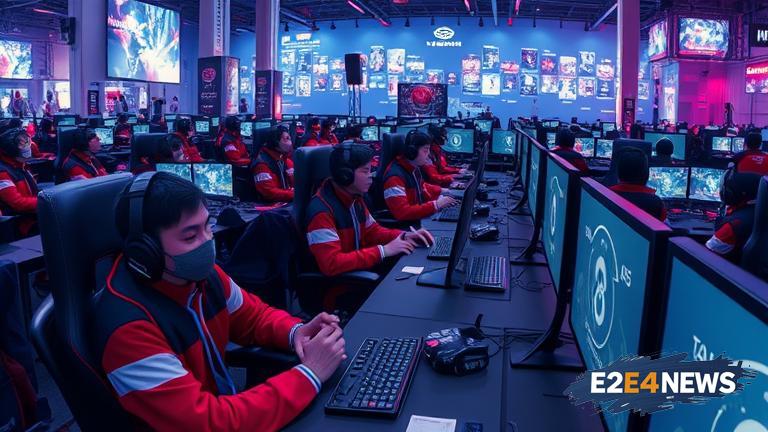South Korea has long been a hub for competitive gaming, with the country’s esports industry experiencing a significant surge in popularity in recent years. The country has hosted numerous international tournaments, including the League of Legends World Championship and the Overwatch World Cup, which have drawn in large crowds and generated significant revenue. The Korean esports industry is valued at over $1 billion, with the country’s top teams and players earning millions of dollars in prize money and sponsorships. The industry’s growth has been driven by a combination of factors, including the country’s high-speed internet infrastructure, its highly competitive gaming culture, and the government’s support for the industry. The Korean government has established a number of initiatives aimed at promoting the growth of the esports industry, including the creation of a dedicated esports division within the Ministry of Culture, Sports and Tourism. The country has also invested heavily in the development of esports infrastructure, including the construction of large-scale arenas and training facilities. One of the key drivers of the Korean esports industry’s success has been the popularity of multiplayer online battle arena (MOBA) games such as League of Legends and Dota 2. These games have attracted large audiences and have been the focus of many of the country’s top teams and players. The country’s top teams, including SK Telecom T1 and Gen.G, have won numerous international championships and have helped to establish Korea as a dominant force in the global esports industry. The industry’s growth has also been driven by the rise of new games and genres, including battle royale games such as Fortnite and PlayerUnknown’s Battlegrounds. These games have attracted a new generation of gamers and have helped to expand the country’s esports industry beyond its traditional focus on MOBA games. The Korean esports industry has also been driven by the growth of the country’s gaming community, with many fans attending live events and watching online streams of tournaments and matches. The industry’s popularity has also been fueled by the success of Korean players in international competitions, with many players becoming household names and inspiring a new generation of gamers. The country’s esports industry has also been supported by a number of high-profile sponsors, including technology companies such as Samsung and LG, and beverage companies such as Red Bull and Coca-Cola. These sponsors have helped to provide financial support for the industry and have played a key role in promoting the growth of the country’s esports scene. Despite the many successes of the Korean esports industry, there are also challenges that the industry faces, including the need for greater regulation and the risk of burnout and injury among players. The industry has also faced criticism for its treatment of players, with many players reporting long hours and low pay. However, the industry is taking steps to address these issues, with many teams and organizations implementing measures to protect the health and well-being of players. The Korean esports industry is also playing a key role in promoting the growth of the country’s gaming industry as a whole, with many game developers and publishers establishing operations in the country. The industry’s growth is also having a positive impact on the country’s economy, with the esports industry generating significant revenue and creating new jobs and opportunities. Overall, the Korean esports industry is a thriving and rapidly growing sector, with the country’s top teams and players competing at the highest level and inspiring a new generation of gamers. The industry’s success is a testament to the country’s highly competitive gaming culture and its highly developed gaming infrastructure, and it is likely to continue to play a major role in the global esports industry for many years to come.





